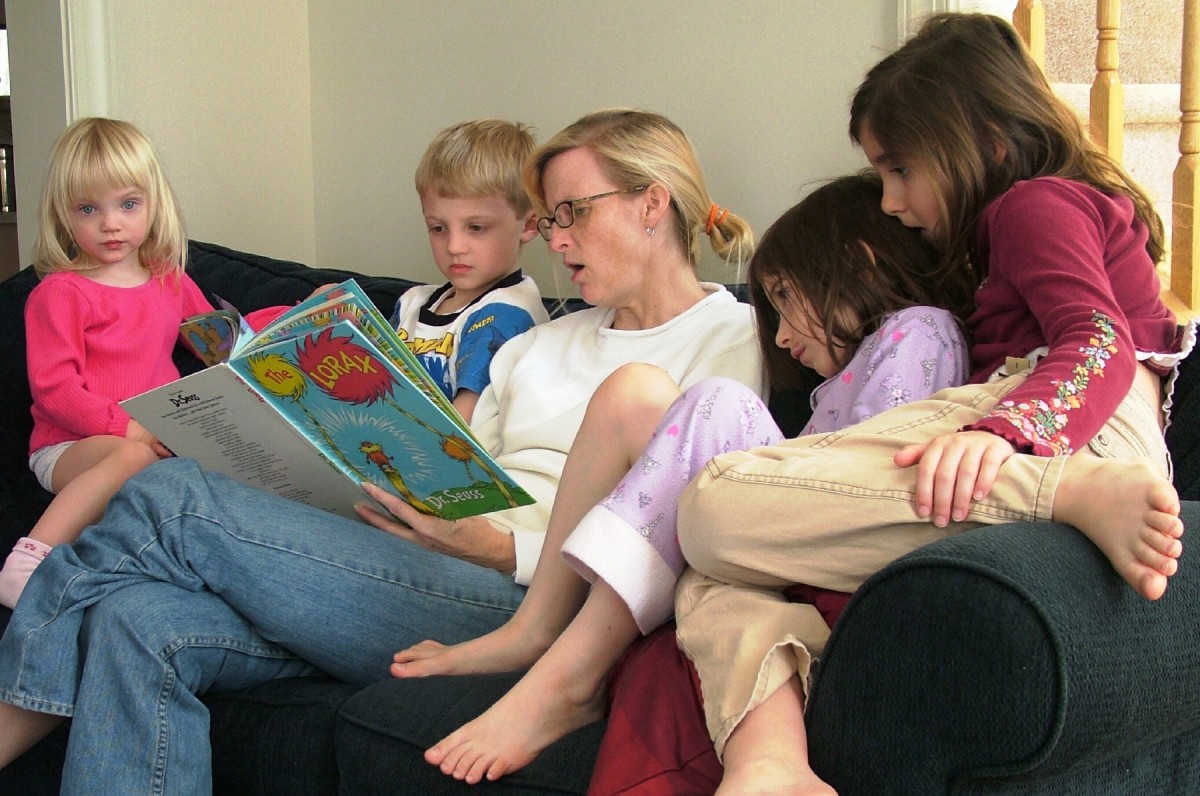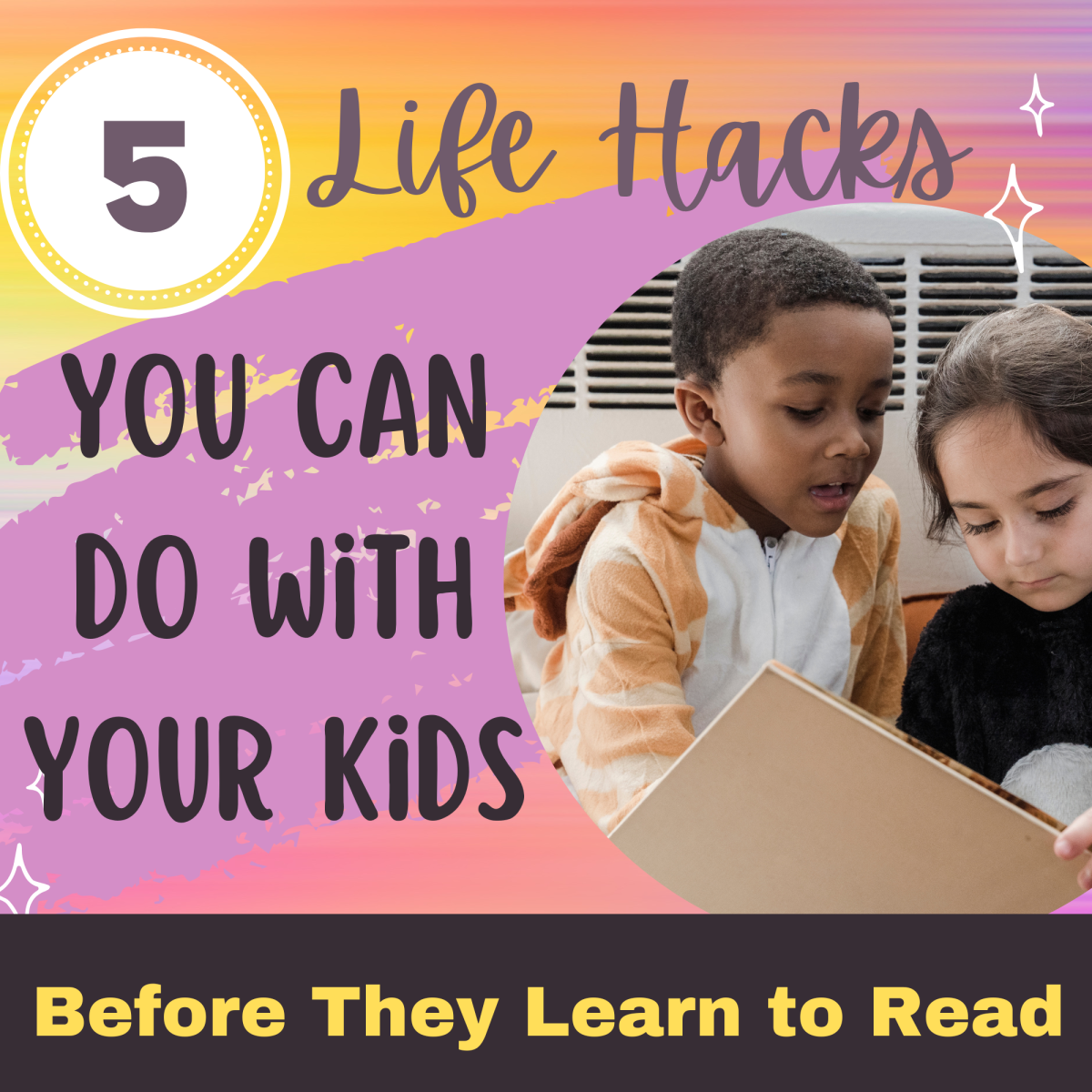Just How Important is Reading Aloud to Children?

The Benefits of Reading Aloud
Parents and educators recognize the importance of reading to children. But how important is it really? An extensive study done in 1999 by the U.S. Department of Education determined that “children who were read to at least three times a week had a significantly greater phonemic awareness when they entered kindergarten than did children who were read to less often and...they were twice as likely to score in the top 25 percent in reading”. It is also known that one of the best predictors of early reading success is phonemic awareness. This is powerful information for stressing the importance of reading aloud to children.There are reading strategies and knowledge, oral vocabulary development, and communications skills that are cultivated in children that listen to stories. In order to optimize learning and motivation for reading it is important to practice reading aloud to children. Listed below are some of the valualbe benefits this instruction offers children.
Read Aloud Research
- Read Aloud Document
This highly informative document provides further research and guidlines for read aloud. It also recommends a list of read aloud books to use with children.
- It builds listening skills and increases children’s attention span as they learn to concentrate at length to stories.
- It exposes children to the specific elements of book language which is different from spoken language. They become familiar with text structure and new vocabulary.
- It expands children’s schema for things they know. Reading books opens up a child’s world giving them opportunity to learn information.
- It contributes to their practice at asking questions and developing opinions about the stories they read.
- Listening to stories read aloud has a direct impact on children’s reading and writing.
- Exploring a variety of text types introduces children to the different purposes for reading and writing i.e. fiction to entertain and non-fiction to inform.
- It provides a model for children and motivates them to become readers and lifelong learners.
Tips for Read Aloud
It is never too early or late to read to children. Reading should start at birth and continue on long after children are able to read on their own. An infant benefits from listening to the rhythmic sounds and voice intonations of a story being read. Older children benefit from the complex thinking and learning that occurs when they listen to texts that are slightly more difficult than they could read on their own. Therefore, it is important to start a reading routine with children and keep it a consistent part of their daily activities. Here are some ways to help set the stage for successful read aloud sessions.

- Find a comfortable place to share the story. Discover new places to read that make it fun and interesting i.e. under a tree, in a home-made fort, at the library, or in the park.
- Take advantage of teachable moments with meaningful examples of texts in the world, i.e. road signs, menus, billboards, cereal boxes.
- During a read aloud monitor children's interest and if they seem restless move onto another activity. Some longer stories may need to be spread out over several reading sessions.
- Read stories that are slightly more complex than they would be able to read on their own.
- Choose interesting books that are enjoyable to children. It is ok to stop a story after a few pages if it is not interesting.
- Encourage children to explain their opinion about books and articles using specific examples. This helps children to think critically.
- Remember to explore a variety of text types, i.e. poems, stories, children’s articles and magazines, comics, etc.
- Ask children quality questions to build communication skills and comprehension. Also teach them to ask their own questions.
- Practice rereading phrases and sections of text to emphasize expression.
- Make sure children have a good view of the book that you are reading.
- Read stories without pictures and have children visualize it by creating pictures in their mind.
- Before, during, and after the reading of the story take time for discussion. Include predictions, opinions, questions, summaries, etc. about the story.
- Explore the think aloud strategy which supports read aloud instruction by introducing the thinking that good readers do.

The Gift of Read Aloud
Reading aloud is a gift you can give to children that is critical for reading development and is also an enjoyable way for parents and children to bond. It fosters communication and promotes meaningful discussions. It encourages children to express themselves more confidently and easily then if they had to read the text for themselves. They can sit back, relax and discover enjoyment for reading. When children are freed to focus on the meaning of the story they are able to work on developing comprehension skills. Read aloud is a strategy for parents and educators to establish strong early literacy skills in children. It motivates a love of reading and also provides the gift of valuable time together.
The Read Aloud Handbook
Long time educational researcher, Jim Trelease, presents considerable evidence to the importance of reading aloud to children. His book also includes over 100 pages of recommended picturebooks and novels that make good read-alouds.
Articles to Teach Reading Skills
- Questions to Ask Kids that Build Communication
A parents interaction with their child is important. They are role models that support the development of conversation skills. By using strategies that facilitate meaningful discussions parents can assist a child's thinking and improve their communic - Teaching Kids to Be Critical Thinkers
In today's fast paced world of technology children need to be lifelong learners. Learn the keys to preparing children to be critical thinkers in the 21st century. - Teaching Spelling to Children
Learn the importance of teaching children to use strategies, for learning new words and developing spelling skills. - Website Articles: A Great Reading Resource for Kids
Discover endless reading resources available on the web for children. Learn about the power of quality texts for developing reading motivation and explore practical tips for maximizing reading sessions with your child.









